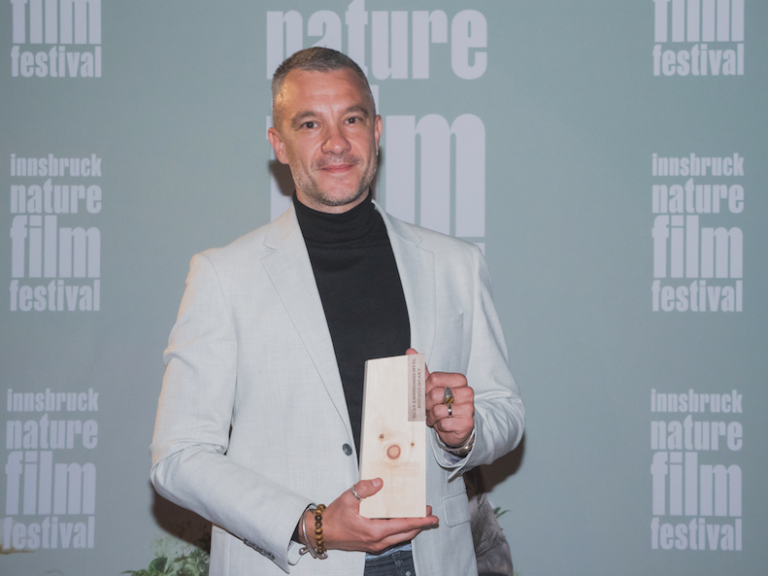
Filmmaker Pablo d’Ambrosi and investigative journalist Giulia Innocenzi have teamed up to dismantle the scandalous truth behind the meat that lands on our tables. Food For Profit takes audiences on a revealing journey across Europe, shaking the lobbycracy that for far too long has channelled taxpayers’ money to subsidise industrial livestock production. The documentary delves into the realities of intensive farming and the complex issues it raises, from water pollution and biodiversity loss to the exploitation of migrants and antibiotic resistance. The film demonstrates the strong link between politics, the meat industry and intensive farming, a sector which, thanks to the Common Agricultural Policy (CAP), will receive 387 billion euros of public money over 7 years, until 2027.
The film’s outcry is loud and clear: we must stop this corrupt system now if we want to save the planet. And ourselves, too. The documentary features insights from international experts and intellectuals, who offer thought-provoking analyses surrounding factory farming and its detrimental influence on our planet. Food For Profit premiered in February at the European Parliament, the very stage where the investigation begins. Through the following months it conquered audiences across Italy, in cinemas and in television programmes. The film’s distribution has arrived also in Spain, the Benelux countries, the United Kingdom, Australia, Taiwan and has won awards at prestigious environmental festivals such as CinemAmbiente and the Innsbruck Nature Film Festival —where it won the Best Environmental Documentary Award.
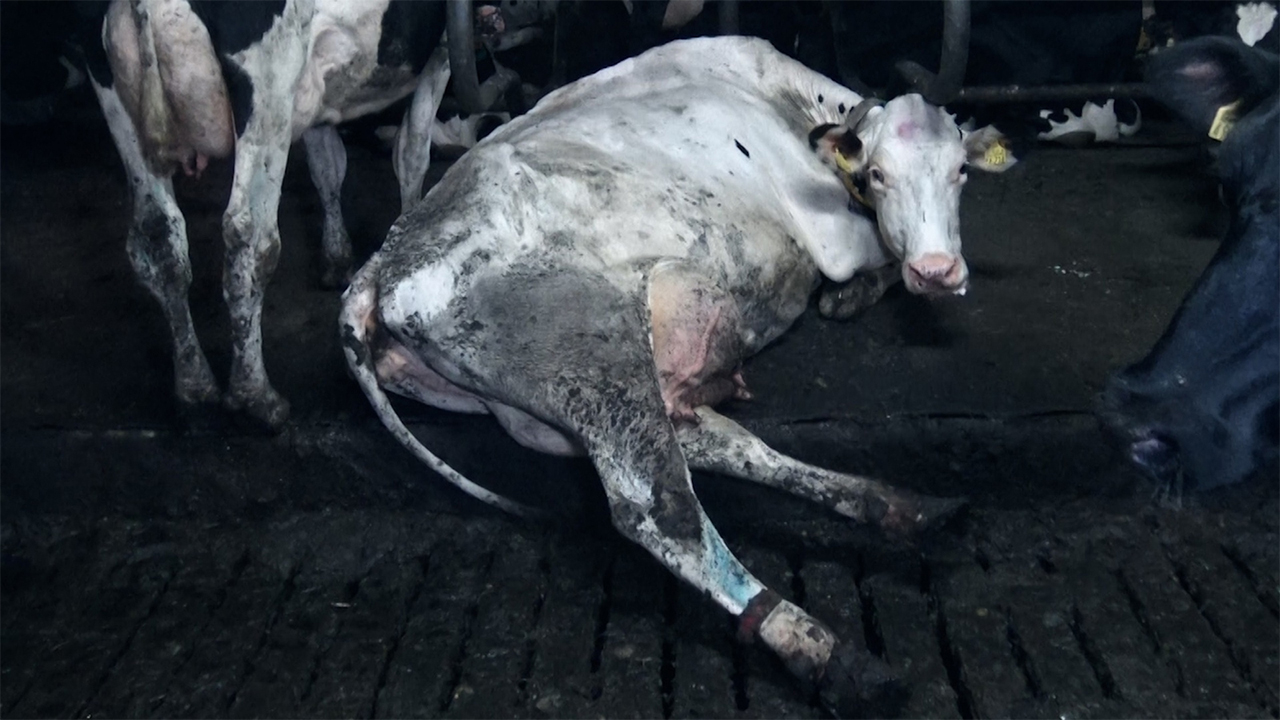
In this Exclusive Interview Pablo D’Ambrosi takes us behind the scenes of the making of Food For Profit:
Q : In what way did your background lead you to this project and how did your collaboration with Giulia begin?
P.D.A: I have a mix background having worked on many music documentaries and investigative films at the same time. When I first moved to London in 2005 I got involved with Creation Records, at the time the independent music label run by the charismatic Alan McGee, the person who discovered Oasis, The Libertines and many other indie rock British bands. Slowly I got involved with bigger and bigger music projects which took me on tour with The Rolling Stones and Paul McCartney, and allowed me to work with artists such as Adele, Ed Sheeran, Post Malone, The Clash, Jamiroquai and many others. In the meantime, as I have a background in sociology and wanted to delve into journalism, I started working for the BBC, where I had the opportunity to work on some investigative documentaries for them, specifically for Panorama and This World. I guess that my mix background gave me the skills and the knowledge to mix the aesthetics of the pop world and the depth of investigative documentaries. So, when Giulia, contacted me to develop this idea about factory farming I went all in and thought it would be great to make a powerful documentary which could have the aesthetics of the entertainment world and the depth of investigative documentary. Form and essence could both be present without compromising.
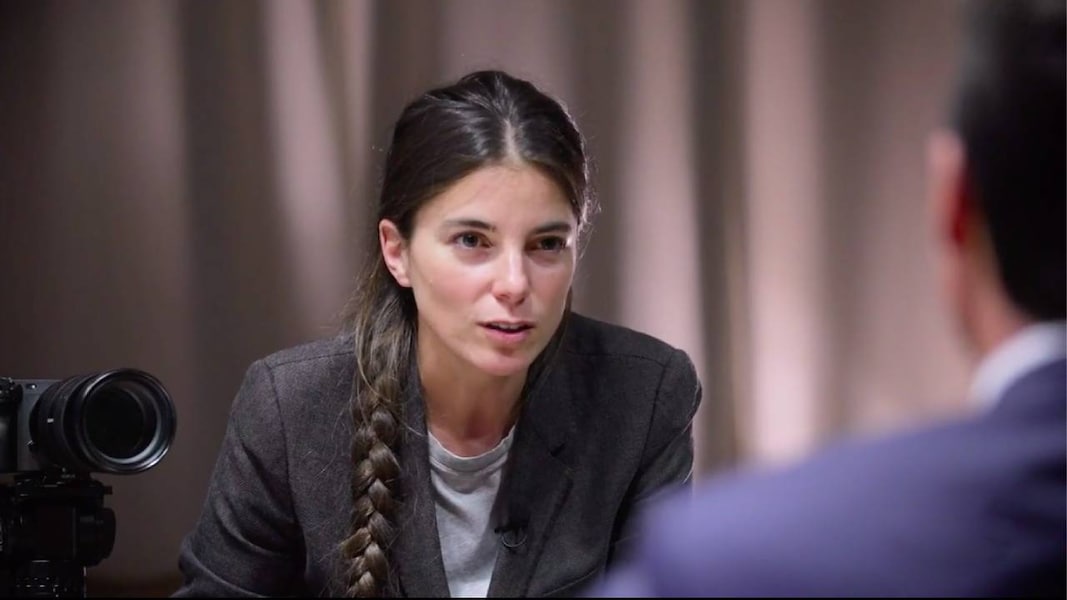
Q : How did you get your informants involved?
P.D.A: The investigation lasted almost two years as it involved many informants from different countries. We sent activists to work in many farms around Europe, the common denominator was that all these farms receive subsidies from the European Union. We had help from LAV [Italian animal rights organization] which helped us coordinate the investigations inside the farms and most importantly helped us financially to sustain this huge investigation. But then we wanted to take it a step further and decided to try to infiltrate the European Parliament to see how the process of policy making works in Europe. Thanks to the help of Lorenzo Mineo, a lobbyist in Brussels, we managed to film with MEPs, members of the European Commission and lobbyists. We showed the public the intricate web of collusion between politics and the agri-food sector.
Q : The investigation lead to risky situations, did you ever feel like giving up?
P.D.A: Giving up wasn’t really an option, especially when you’ve already invested so much of your time. Giulia and I carried on working on this project for 5 years, investing every penny that we raised to try to get it done. It wasn’t easy because when you try to go against powerful people and institutions you find lots of closed doors, but we also found lots of people that really wanted to help us bringing out the truth. Nobody really wanted to show the film as they were scared of legal repercussions, so we were forced to think outside the box. We asked the public to contact their local cinemas and ask to screen Food for Profit. The first few independent cinemas that picked up on it were all sold out very quickly, and when companies see money and success they all want to jump on the wagon. The result was that we had thousands of screenings and the film was out in cinemas in Italy for 18 weeks in a row and in the top 10 at the box office for 10 weeks. Luckily we didn’t give up.
Q : How did you protect yourselves and the film from a legal perspective?
P.D.A: This wasn’t easy, we had to go through a few versions of the film in the edit to assess all the legal issues with our lawyer. Our investigation touches really powerful multinationals of the agri-food sector and we didn’t want them to be able to stop the release of the film. A few weeks before we were about to release it, we started receiving legal warrants from corporations which threatened us if we revealed their names. A funny anecdote is that one of the multinationals that sent us legal warrants, is not even featured in the film, obviously they know something is wrong in their system of production and wanted to make sure their name wouldn’t come up. This made us realize that by naming only a few corporations we would give the opportunity to their competitors to wash their hands of the matter and blame other companies for the wrongdoings in the agri-food sector. We wanted to expose this system of production as a whole, not name and shame just a few corporations, and I think that by omitting the names of the corporations in the film it helped deliver the message that it’s not just a few bad apples, the problem is within the system itself.
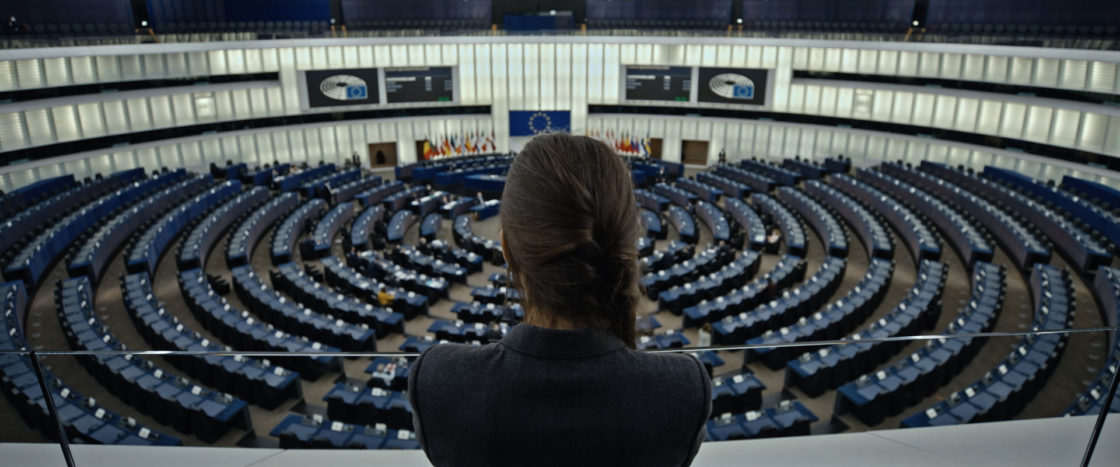
Q : What were the reactions when you screened the film at the European Parliament?
P.D.A: We would have never imagined to have the premiere of the film at the European Parliament, but thanks to the help of three MEPs which supported the film, we were able to screen it in the Parliament hall. The experience was really powerful and surreal, suddenly we were showing our film to the same institution that we were exposing. But we knew that some people weren’t happy, the agri-food sector sent a couple of lobbyists to report on what was going on inside Parliament. They were taking pictures and video and reporting everything on WhatsApp groups to other MEPs and influential people in Europe. A camera crew from a tv station even filmed them but unfortunately due to privacy reasons they are not allowed to show the messages and the people that they were addressed to. So I would say, it was an interesting reaction to say the least.
Q : The film has been influential to the point that two former MEPs — Paolo De Castro and Clara Aguilera — were so exposed that they did not run again for office. And yet Paolo De Castro might return to Bruxelles at the European Commission, do you think it is likely to happen?
P.D.A: Yes, it’s amazing that the success of the film lead effectively to have two very powerful MEPs stepping down. Officially they didn’t run again for office at the recent 2024 European Parliament elections, but in practice what happened is that European newspapers and tv news started talking about the film and public opinion was so outraged that they asked them to step down. We would have never thought that the film would lead to this, but this is exactly why investigative documentaries are so important, they can shape public opinion and bring real change. I’m somehow cynic and I know that someone like Paolo De Castro, who is one of the most powerful MEPs with strong links to agri-food, will shortly be replaced to make sure that the interests of the sector are maintained. But nevertheless it won’t be easy to replace someone of his calibre. Recently there are rumors that De Castro will be back at the European Commission as a consultant for the Italian government. As I said I’m a cynic, we will see what happens.
Q : What was your reaction when the film became one of the most seen in Italy and the only documentary on the shortlist to represent the nation at the Academy Awards?
P.D.A: I knew we made a powerful film, but unfortunately there are so many powerful documentaries out there that are not seen by anyone, so when the film started going viral we were elated. Distribution didn’t believe in the film initially, saying it was too political and that people wanted to watch more entertaining and commercial films. Well, the audience proved them completely wrong, transforming the film into a huge success. The film was even shortlisted to represent Italy at the Oscars in 2025 and now the industry is praising the power of investigative documentaries. I love how quickly they changed their minds.
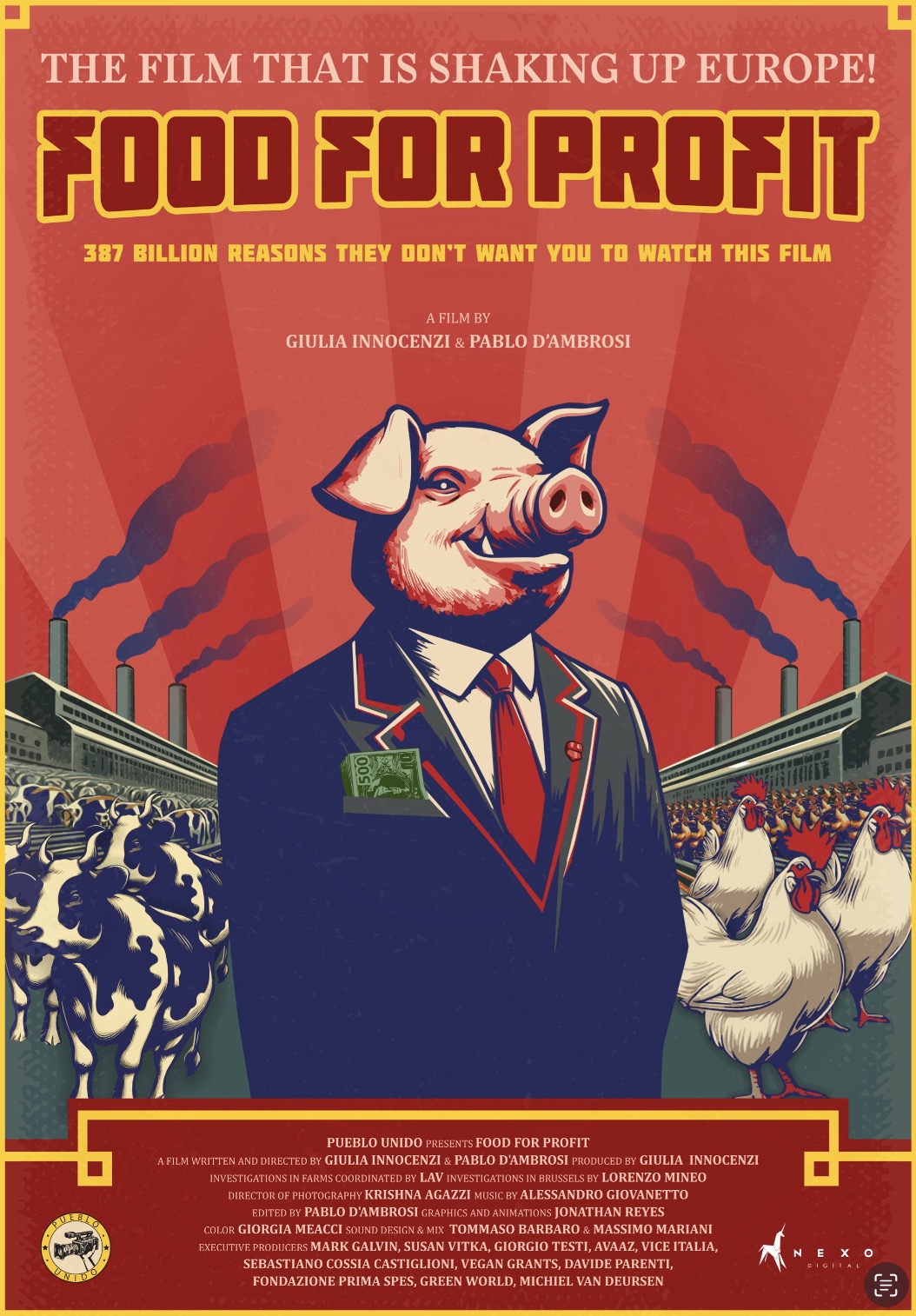
Q : The film has carried out an impact campaign that can influence policymaking and people’s eating habits, what surprised you the most of the change Food For Profit brought?
P.D.A: When we first started working on the film I told Giulia that I didn’t want to make another ‘vegan documentary.’ I wanted to make a film that would speak to everyone, especially omnivores. That’s why we decide to include in the film all the problems related to intensive farming. Animal suffering and mistreatment is certainly present everywhere in factory farming, but we also wanted to expose the damage that it’s creating to the environment, to climate change, to bio diversity, and again to workers’ exploitation and the destruction of communities, and to health, causing antibiotic resistance and sowing the seeds for the next pandemics. All of these problems are all caused by the same thing, intensive animal agriculture. By exposing all these factors we managed to reach a vast audience with different eating habits, age, sex, social status. In the months after the release of the film we received hundreds of messages from people telling us how much the film impacted their lives their eating habits and the way they look at politics. In my opinion this was our greatest victory.
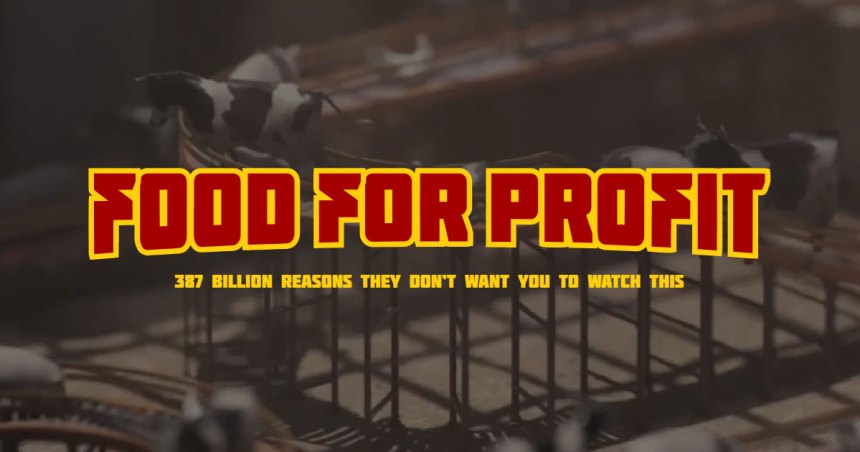
Q : There’s a nod to George Orwell’s Animal Farm through the film’s poster and the animation at the end that has a touch of Looney Tunes while the song ‘I hear revolution calling’ is playing. Do you think this revolution will change the way food is produced?
P.D.A: Revolutions are slow and don’t happen overnight, but if you look at, for instance, the number of vegetarians and vegans in the world, it’s increasing exponentially. And this is mainly thanks to the information and awareness that has been brought forward by many groundbreaking documentaries and books. That’s exactly what we wanted to do with this film, we wanted to bring a dose of consciousness to the table. It’s now up to the individuals to make their choices, but also let’s not forget the social aspect of it and realise that public opinion can be very influential and bring about change.
Q : Do you feel Food For Profit has created a model for independent investigative documentaries and are you planning to make other documentaries using this approach?
P.D.A: Wow, I would be honoured to think that we created a model for investigative documentaries. I would let someone else judge that, but what I can say is that I hope that Food for Profit will pave the way for many other investigative documentaries. I think that a healthy society needs these kinds of films and that the public showed a huge interest for it.
We won’t stop here even if they will keep trying to tell us otherwise…

